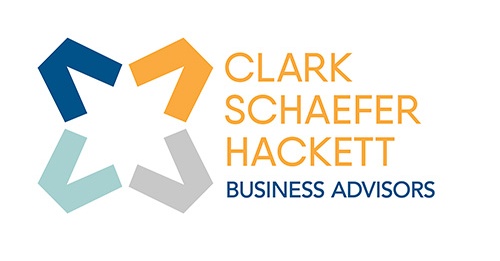QBI Deduction: Here Today and Gone Tomorrow?
The qualified business income (QBI) deduction is available for eligible individuals through 2025. After that it's scheduled to expire, unless Congress passes legislation to extend it. With 2024 underway, it's time to use-or-lose the lucrative write-off.
Read Brittany Lawrence's article to learn what you need to know to cash in on the QBI deduction.
QBI Deduction: Here Today and Gone Tomorrow?
The deduction for qualified business income (QBI) is currently accessible for eligible individuals until 2025. At that point, unless congress enacts legislation to prolong it, it’s set to expire. As 2024 progresses, it’s crucial to capitalize on this advantageous deduction before it potentially vanishes.
The QBI Basics
The QBI deduction can be up to 20% of:
- QBI earned from a sole proprietorship or a single-member limited liability company (LLC) that’s treated as a sole proprietorship for federal income tax purposes, plus
- QBI from a pass-through business entity, meaning an S corporation, a partnership or an LLC that’s treated as a partnership for federal income tax purposes.
QBI can also include up to 20% of eligible income from publicly traded partnerships and up to 20% of eligible dividends from real estate investment trusts. However, this article focuses specifically on QBI deductions from the more common kinds of pass-through businesses.
Important to note: Pass-through business entities report their federal income tax items to their owners, who then take them into account on their owner-level returns. The QBI deduction, when allowed, is then written off at the owner level, and can potentially save significant tax dollars.
How is QBI Defined?
The term “QBI” refers to qualified income and gains from an eligible business reduced by related deductions and losses. QBI from a business is reduced by the allocable deductions for the following items:
- Contributions to a self-employed retirement plan,
- 50% of your self-employment tax bill, and
- Self-employed health insurance premiums.
The following items don’t count as QBI:
- Income from the business of being an employee,
- Partner salaries, which refer to guaranteed payments received by partners or LLC members treated as partners for tax purposes for services rendered to the business,
- Salary collected by an S corporation shareholder-employee, and
- Salary collected by a C corporation shareholder-employee.
On your personal return, the QBI deduction doesn’t reduce your adjusted gross income (AGI). In effect, it’s treated the same as an allowable itemized deduction.
Unfortunately, the QBI deduction doesn’t reduce your net earnings from self-employment for purposes of the self-employment tax. Nor does it reduce your net investment income for purposes of the 3.8% net investment income tax (NIIT) on higher-income taxpayers.
Limitations to Note
At higher income levels, unfavorable QBI deduction limitations come into play. These income limits are indexed annually for inflation. Here are the income-based phase-in thresholds for 2023 and 2024:
Phase-In Ranges for 2023 and 2024
| Filing Status | 2023 | 2024 |
| Married Filing Jointly | $364,200 – $426,200 | $383,900 – $483,900 |
| All Others | $182,100 – $232,100 | $191,950 – $241,950 |
If your income exceeds the applicable fully phased-in number, your QBI deduction is limited to the greater of:
- Your share of 50% of W-2 wages paid to employees during the tax year and properly allocable to QBI, or
- The sum of your share of 25% of such W-2 wages, plus your share of 2.5% of the unadjusted basis immediately upon acquisition (UBIA) of qualified property.
The limitation based on the UBIA of qualified property is intended to benefit capital-intensive businesses, such as manufacturers or hotels. Qualified property means depreciable tangible property (including real estate) that’s owned by a qualified business and used by that business for the production of QBI. The UBIA of qualified property generally equals its original cost when it was first put to use in your business.
Finally, your QBI deduction can’t exceed 20% of your taxable income calculated before any QBI deduction and before any net capital gain amount (net long-term capital gains in excess of net short-term capital losses plus qualified dividends).
Special Unfavorable Rules for Service Businesses
If your business is classified as a specified service trade or business (SSTB), QBI deductions begin to be phased out when your taxable income (calculated before any QBI deduction) exceeds the applicable threshold. The following phase-out ranges apply to SSTBs for 2023 and 2024:
Phase-Out Ranges for 2023 and 2024
| Filing Status | 2023 | 2024 |
| Married Filing Jointly | $364,200 – $464,200 | $383,900 – $483,900 |
| All Others | $182,100 – $232,100 | $191,950 – $241,950 |
If your taxable income for the year exceeds the applicable complete phase-out number, you’re not allowed to claim any QBI deduction for that year based on income from any SSTB.
SSTB Defined
In general, a specified service trade or business (SSTB) is any trade or business involving the performance of services in one or more of the following fields:
- Health, law, accounting and actuarial science,
- Consulting,
- Financial, brokerage, investing and investment management services,
- Trading,
- Dealing in securities, partnership interests or commodities,
- Athletics and performing arts, and
- Any trade or business where the principal asset is the reputation or skill of one or more of its employees or owners.
Important to note: Architecture and engineering firms aren’t considered SSTBs.
Before the IRS issued regulations on this issue, there was concern that the last definition could snare unsuspecting businesses, such as small restaurants with well-known chefs. Thankfully, the regs limit the last item on this list to businesses that receive fees, compensation or other income for:
- Endorsing products or services,
- Using an individual’s image, likeness, name, signature, voice, trademark or any other symbol associated with that individual’s identity, and/or
- Appearing at an event or on radio, television or another media format
Leverage QBI Deductions in 2024
While the QBI deduction is set to disappear in 2025, you never know what will change between now and then. In the meantime, it’s a good idea to partner with a strong tax expert and determine if you can leverage this deduction while it’s still available. The team at CSH is well versed in the QBI complexities and can help you make the most of your tax situation.
Interested in reading more? Check out our top four tips to maximize the QBI deduction.
 Brittany Lawrence (left) is a tax shareholder who focuses on business tax planning and compliance. In addition to multi-state experience, Brittany’s industry focuses include real estate and manufacturing. She helps clients fulfill the compliance requirements of the various taxing authorities while minimizing tax implications and providing valuable tax planning strategies, including multi-tiered partnerships and section 1031 like kind exchanges. Brittany works frequently with the Internal Revenue Service and the State of Ohio, resolving conflicts and assisting clients with audits.
Brittany Lawrence (left) is a tax shareholder who focuses on business tax planning and compliance. In addition to multi-state experience, Brittany’s industry focuses include real estate and manufacturing. She helps clients fulfill the compliance requirements of the various taxing authorities while minimizing tax implications and providing valuable tax planning strategies, including multi-tiered partnerships and section 1031 like kind exchanges. Brittany works frequently with the Internal Revenue Service and the State of Ohio, resolving conflicts and assisting clients with audits.
images courtesy of Clark Schaefer Hackett and iStock















